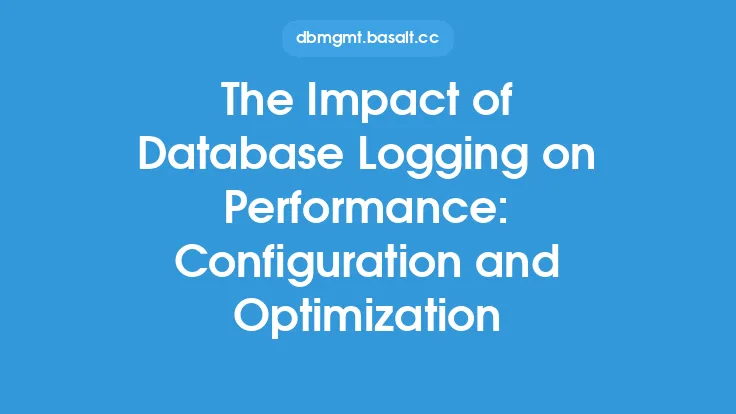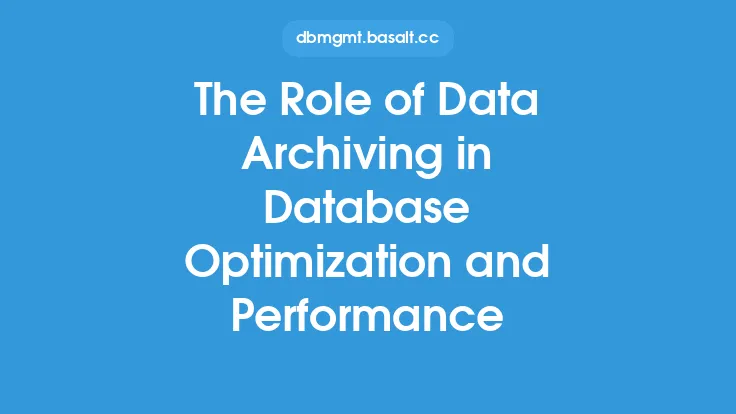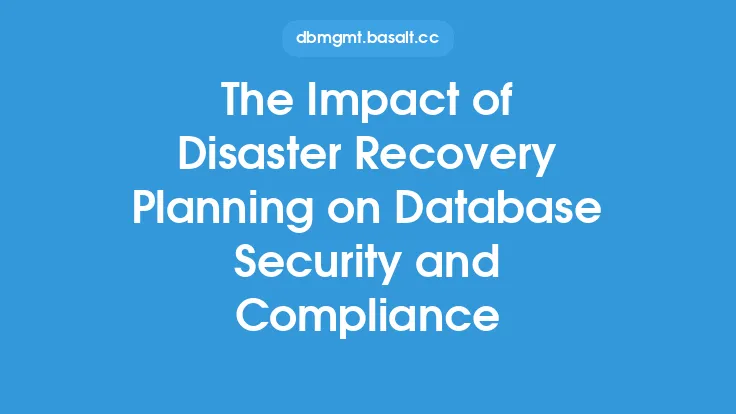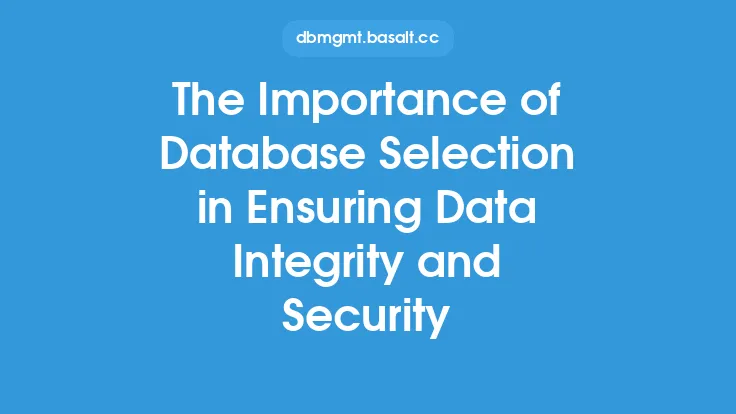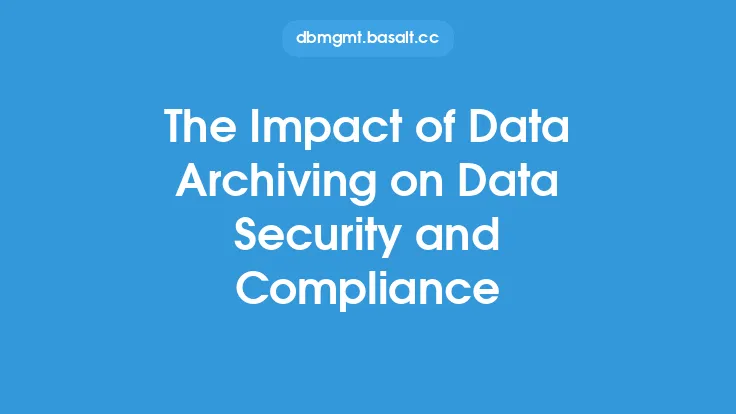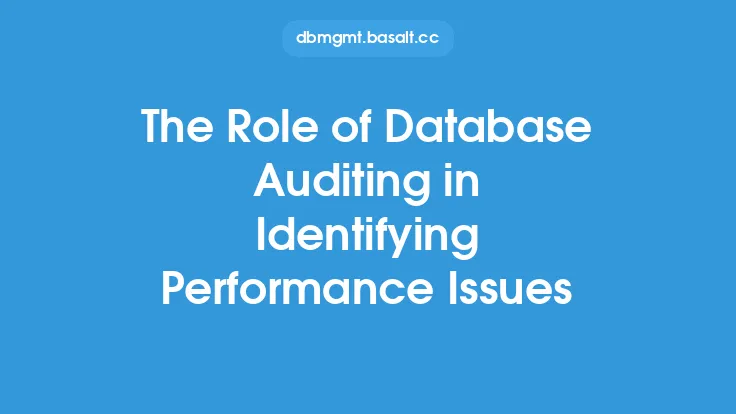Security auditing is a critical component of database management, as it helps identify vulnerabilities, ensure compliance with regulatory requirements, and protect sensitive data from unauthorized access. However, security auditing can also have a significant impact on database performance and optimization. In this article, we will explore the relationship between security auditing and database performance, and discuss ways to minimize the impact of security auditing on database optimization.
Introduction to Security Auditing and Database Performance
Security auditing involves analyzing database configurations, user permissions, and system settings to identify potential security risks. This process can be resource-intensive, as it requires querying the database, analyzing logs, and executing complex queries. As a result, security auditing can consume significant system resources, including CPU, memory, and disk I/O. If not properly managed, security auditing can lead to performance degradation, slower query execution, and increased latency.
Types of Security Auditing and Their Impact on Database Performance
There are several types of security auditing, each with its own impact on database performance. These include:
- Configuration auditing: This type of auditing involves analyzing database configurations, such as user permissions, firewall rules, and encryption settings. Configuration auditing typically has a low impact on database performance, as it only requires querying the database configuration tables.
- Vulnerability scanning: This type of auditing involves identifying potential vulnerabilities in the database, such as outdated software or missing patches. Vulnerability scanning can have a moderate impact on database performance, as it requires executing complex queries and analyzing system logs.
- Penetration testing: This type of auditing involves simulating attacks on the database to identify potential security risks. Penetration testing can have a high impact on database performance, as it requires executing complex queries, creating test data, and analyzing system logs.
Factors That Influence the Impact of Security Auditing on Database Performance
Several factors can influence the impact of security auditing on database performance, including:
- Database size and complexity: Larger and more complex databases require more resources to audit, which can lead to increased performance degradation.
- Auditing frequency and duration: More frequent and longer auditing sessions can lead to increased performance degradation.
- System resources: The availability of system resources, such as CPU, memory, and disk I/O, can impact the performance of security auditing.
- Auditing tools and techniques: The type of auditing tools and techniques used can impact the performance of security auditing. For example, automated auditing tools can be more efficient than manual auditing techniques.
Minimizing the Impact of Security Auditing on Database Performance
To minimize the impact of security auditing on database performance, several strategies can be employed, including:
- Scheduling auditing sessions: Auditing sessions can be scheduled during periods of low database activity to minimize the impact on performance.
- Using automated auditing tools: Automated auditing tools can be more efficient than manual auditing techniques, reducing the impact on database performance.
- Optimizing auditing queries: Auditing queries can be optimized to reduce the amount of system resources required, minimizing the impact on database performance.
- Using indexing and caching: Indexing and caching can be used to improve query performance, reducing the impact of security auditing on database performance.
Best Practices for Security Auditing and Database Performance
To ensure that security auditing does not compromise database performance, several best practices can be followed, including:
- Regularly monitoring database performance: Database performance should be regularly monitored to identify potential issues related to security auditing.
- Analyzing auditing logs: Auditing logs should be regularly analyzed to identify potential security risks and optimize auditing queries.
- Using auditing tools with minimal impact: Auditing tools with minimal impact on database performance should be used, such as automated auditing tools.
- Implementing a comprehensive security audit plan: A comprehensive security audit plan should be implemented, including scheduling auditing sessions, optimizing auditing queries, and using indexing and caching.
Conclusion
Security auditing is a critical component of database management, but it can also have a significant impact on database performance and optimization. By understanding the types of security auditing, factors that influence the impact of security auditing, and strategies for minimizing the impact, database administrators can ensure that security auditing does not compromise database performance. By following best practices for security auditing and database performance, database administrators can ensure that their databases are secure, compliant, and performing optimally.
